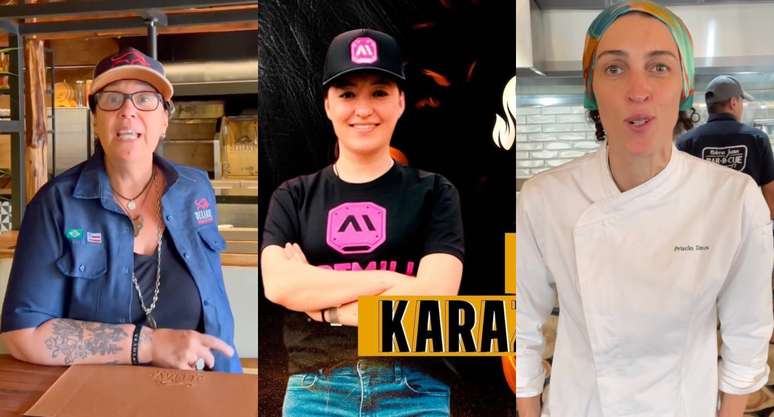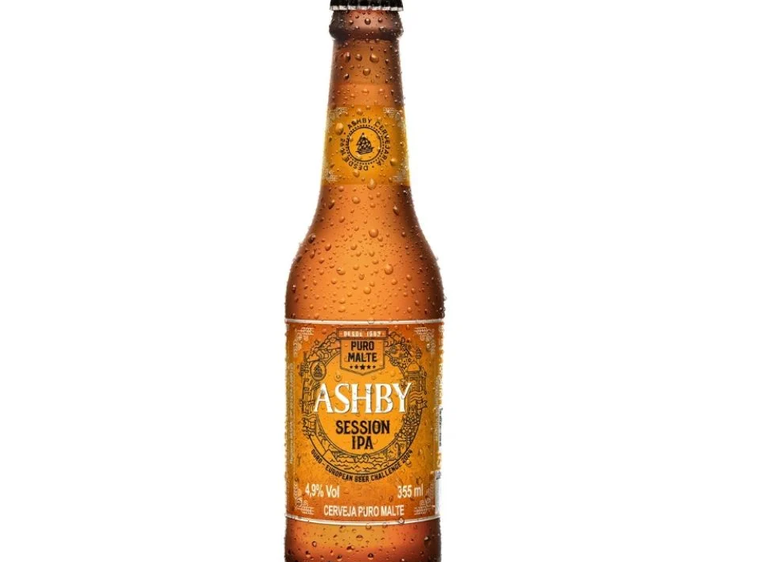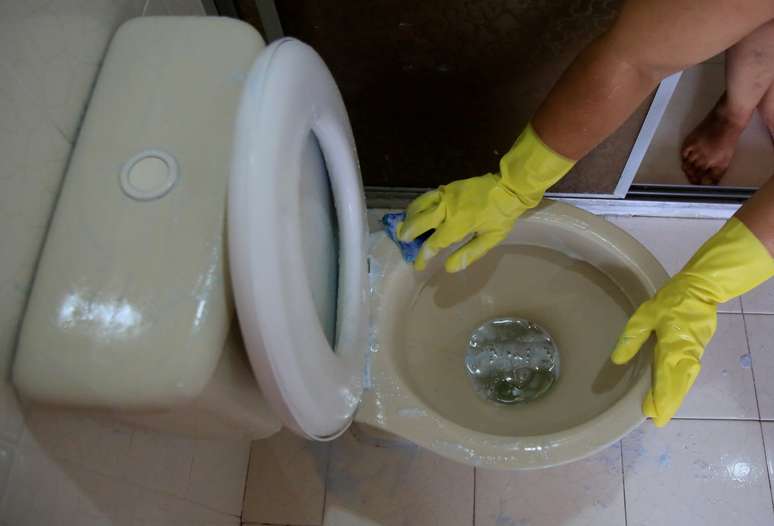Known as roasting chefs, they run around Brazil showing technique and dedication
html[data-range=”xlarge”] figure image img.img-c721ba2a8144280c40041761fbc66ec3pholmqlm { width: 774px; height: 417px; }HTML[data-range=”large”] figure image img.img-c721ba2a8144280c40041761fbc66ec3pholmqlm { width: 548px; height: 295px; }HTML[data-range=”small”] figure image img.img-c721ba2a8144280c40041761fbc66ec3pholmqlm, html[data-range=”medium”] figure image img.img-c721ba2a8144280c40041761fbc66ec3pholmqlm { width: 564px; height: 304px; }
Who said barbecue is only for men? Despite being considered a typically male environment, in recent years there have been many women who have managed to put themselves on an equal footing with men when it comes to commanding the grid.
But even if on a smaller scale, there are already many roast chefs and they are becoming increasingly popular, demonstrating technique and skill in handling meat and grilled meats. Paladar has selected five roast chefs who have a lot to say about their profession, machismo and, of course, their passion for meat.
LIGIA KARAZAWA
Roast chef Ligia Karazawa’s specialty is Japanese barbecue, which she prepares with Wagyu cattle, an Asian breed that has breeders in Brazil. The choice of this modality, she says, is attributed to her roots. “That’s why I’ve always tried to give a certain identity to my grill work.” Owner of a stellar resume, Lígia has worked in some of the most renowned restaurants in Europe. And it was in Spain that her interest in grilling was born.
“They have a very close bond with brasa. Not only with Chuletas, but also with Paella itself, which was originally made like this. Back in Brazil, Ligia was responsible for assembling Brace (at the Eataly emporium) ( brasa a Lígia loves the classic combination of barbecue and beer, but thinks the dish fits any occasion and goes with everything.
“I had a really fancy event the other day where barbecue was served with side dishes like roasted Abóbora Cabotiá with herb butter and beetroot with lemon sour cream and harmonized with French champagne. It was a very different experience, it is it was incredible,” he says. “This just shows that we need to open our minds, including other nationalities’ barbecues, such as Koreans.”
PAULA LABAKI
When it comes to barbecue made by women, Paula Labaki is one of the most recognized names. Born and raised on a farm in the hinterland of São Paulo, she always accompanied her father to barbecues and she says that, ever since she started working in gastronomy, the meat plaza has always fascinated her. From there to studying and improving, it was a leap.
Today, in addition to presenting a program on the subject, the straight from the grillfrom the Sabor & Arte channel, takes the barbecue brazilian style at festivals around the world.
“Brazil is seen as the land of barbecue and it’s great to see the faces of the gringos eating our barbecue with a nice farofa and vinaigrette. They go crazy,” he says. Mother and grandmother of two, Paula says it’s gratifying to see more and more women roasting.
“It’s a profession that requires concentration, determination, preparation and study. It’s not an easy routine, it’s hours and hours standing next to extreme heat,” he reflects. “Many women still feel intimidated by being a very masculine medium, but it’s important to overcome this thought. Our place is where we want to be!”
PRISCILLA GOD
“With technique, anyone can make a barbecue. But there is always a final touch of each one that will bring more elegance,” says expert Priscila Deus, roast chef at Pobre Juan, for whom the profession was born almost by accident .
“When I got together with friends, I always had plans to play barbecue, but I never saw it as a profession,” she recalls. Before entering this universe, Priscila interned with masterchef Érick Jacquin and, after graduating, he headed to Spain, where he worked in pastry. “But I found that, during the night, the chef put together a crew to clean and cut. I asked for help and understood immediately.”
From there, Priscila went to England, where she had her first real experience with meat. “My English was bad and I had to write the names of the cuts on a piece of paper to know what the chef wanted,” she confesses.
When he returned to Brazil, he had his first contact with smoking and also produced bacon and pastrami. Already more mature, she left for a new adventure in London, this time in an Argentinian restaurant. “I remember one night I had to cook alone for 300 tables.
I was nervous, but I made it and was eventually promoted to chef,” she recalls. “I don’t really like to say I do barbecue. I often say that I work with fire. This allows me to use other ingredients, not just beef,” she analyzes.
THEIR BARBECUE
Aline Marinho and Joana Angélica met in 2016, when they attended the reality BBQ Brasil – Grilled on Brasa, broadcast on SBT. After the program, the two combined their knowledge and willingness to enter and created ChurrasDelas.
It didn’t take long for the duo to start doing events in breweries and bars. With experience, three years later the two were already touring Brazil, participating in barbecue festivals. Aline says it wasn’t until after the show that they realized that women were really interested in the subject.
“We’ve received so many messages from people who wanted to know how to get started in the profession but didn’t know how. Think: how many times have you been to a barbecue and seen a woman in charge?” he asks.
So, the couple who already had technical knowledge, moved on to learn the gastronomic side of things. It worked: Argentine parrilla, Uruguayan parrilla and smoking are some of the specialties of the two, who have discovered a niche not only for acting, but also for teaching courses – to date, they have taught more than 1000 students. The two have also created a frozen barbecue delivery company, Cozina Foods, where they employ socially vulnerable women.
“Our company is all female, from the administrative side to the production. When we started we didn’t have many references. Now, when women see other women with their hands in the dough, they get excited. And the more of us in this movement, the better” .
TATIANA BASSI
“There’s nothing to do, I’m passionate about barbecue. This art is my life,” says Tatiana Bassi. The phrase is the result of 50 years of history, which began with her father, the famous butcher Marcos Bassi, who used to barbecue at home. “Since I was a child, I accompanied him and helped him carry the meat, the skewers and all the utensils.
And since I’ve always been passionate about this art, it was natural to follow this path”, she says. Today Tatiana is partner-owner of the Templo da Carne Marcos Bassi, the only Brazilian restaurant mentioned in the documentary. Steak revolution as one of the top ten meats in the world. Multitasking, take part in the entire operation of the house, whether at the barbecue, in the shop or in the kitchen. dark kitchensupervising the deliveries of delivery.
Tatiana says that in the beginning she saw some resistance to the acceptance of women in the barbecue area. “I don’t want to generalize, but this still exists. But I think men are realizing that we can add a lot to this movement,” she says, who today she perceives a greater receptivity, especially in events related to the theme, such as Churrascada.
“The festival is a key turning point for the new generation of roasters. There are many good women who are barbecuing and many more are getting more and more interested, wanting to learn and be inspired by our work. We are proud.”
Source: Terra
Ben Stock is a lifestyle journalist and author at Gossipify. He writes about topics such as health, wellness, travel, food and home decor. He provides practical advice and inspiration to improve well-being, keeps readers up to date with latest lifestyle news and trends, known for his engaging writing style, in-depth analysis and unique perspectives.







![Tomorrow we belong to: What awaits you in the 2054 episode of Thursday on October 16, 2025 [SPOILERS] Tomorrow we belong to: What awaits you in the 2054 episode of Thursday on October 16, 2025 [SPOILERS]](https://fr.web.img6.acsta.net/img/3f/3b/3f3b56983d580fbe5136143378b45a29.jpg)
